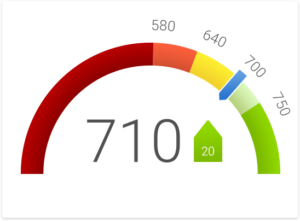 Today’s top story: How to vanquish 5 common financial fears. Also in the news: Will you get what Social Security promises, how to save money online with these sneaky tricks, and 10 better money habits to start now.
Today’s top story: How to vanquish 5 common financial fears. Also in the news: Will you get what Social Security promises, how to save money online with these sneaky tricks, and 10 better money habits to start now.
Vanquish 5 Common Financial Fears
Time to put these fears to rest.
Will You Get What Social Security Promises?
Making smarter decisions about claiming your benefit.
Save Money Online Shopping With These Sneaky Tricks
Thinking beyond coupons.
10 Better Money Habits to Start Now
The right habits can boost your savings.
 Today’s top story: Will you get what Social Security promises. Also in the news: 3 things to do when you get a salary increase, 4 winter wellness experiences you can book with points, and using teen debit cards to teach your kids real-world lessons about money.
Today’s top story: Will you get what Social Security promises. Also in the news: 3 things to do when you get a salary increase, 4 winter wellness experiences you can book with points, and using teen debit cards to teach your kids real-world lessons about money. Today’s top story: 6 types of conventional loans all home buyers should know. Also in the news: How your credit score can save you money, why you need to verify your Equifax settlement claim, and why you need to be careful when deciding to claim Social Security based on break-even calculations.
Today’s top story: 6 types of conventional loans all home buyers should know. Also in the news: How your credit score can save you money, why you need to verify your Equifax settlement claim, and why you need to be careful when deciding to claim Social Security based on break-even calculations.